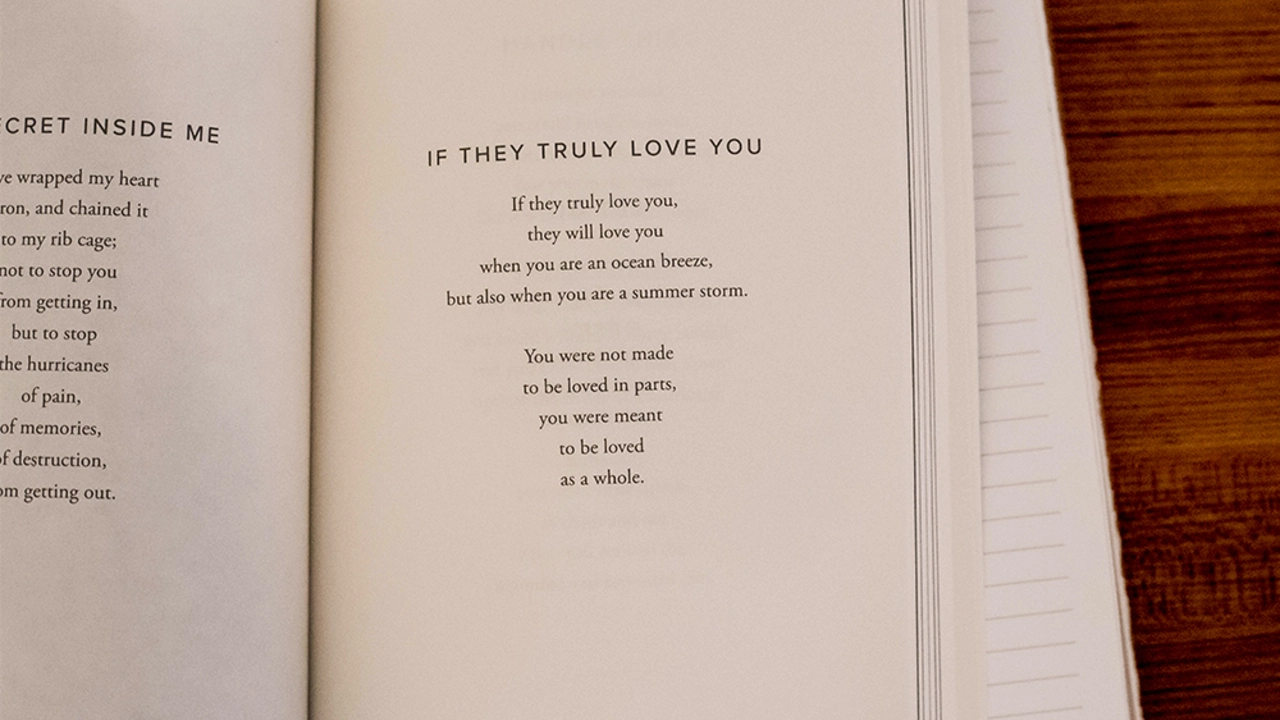For starters, in the realm of poetry books
Snuggled here auspiciously in the heart of Melbourne, Australia, with a fresh cup of coffee in one hand and my undying love for poetry and literature humming vibrantly in the other, I ponder today over an intriguing question – Are 40 poems enough for a poetry book?
As I compose these thoughts, Caspian, your friendly neighbourhood poet and blogger, is struck by how frequently it is that budding poets find themselves entangled in the intricate maze of such seemingly simple questions. Is it too less? Is it too much? The query seems almost as weighty as contemplating the meaning of life, doesn’t it? But guess what? It's not.
Embodying the Right Numbers
The fascinating world of poetry often brings us face to face with dilemmas related to numbers and measurements. The idea of number '40' has an almost sacred undertone, reminiscent of the many religious and spiritual traditions where it symbolises a time of transition or change.
In poetry, the forty-poem mark signifies a generative means of human expression. A book of forty poems can be a powerful introspective journey that bridges the chasm between the poet and the reader. In measurable terms, it's that sweet spot that provides the poet ample space to tell their story in depth but doesn't overwhelm the reader with length or complexity.
Content: The Heart of the Matter
But, much like every other creative field, the quality of content holds more value than mere quantity in a poetry book. Forty poems of extraordinary insight and evocative depth could make a stronger impact than a hundred lacklustre verses. Poetry is an art where you don't just string words together; you craft experiences, paint emotions, and sculpt thoughts.
Therefore, having 40 poems in a book would be quite sufficient if each poem uniquely contributes to the overarching theme, style, and tone of the book. Remember, a well-crafted book of poems ought to feel like a tightly-woven tapestry, where each thread (or poem) lends its colour and texture to the grand picture.
Historical Precedence and Famous Examples
One of my personal favourite poetry compilations is Leonard Cohen's "Book of Longing". It comprised of merely 40 to 50 poems, depending on the edition, and yet, it managed to deeply impact the readers and definitively established Cohen as a celebrated poet.
Similarly, 'Ariel' by Sylvia Plath consisted of 40 poems originally, skilfully curated and arranged by the poet herself prior to her untimely death. Regardless of their quantity, these are books where every verse resonated deeply with readers, underscoring that the number ‘40’ might be more than just serendipitous.
Understanding Market Standards
Any beginner poet would benefit from understanding that the literary market doesn't impose rigid standards regarding the number of poems in a book. A standard count of 40 to 70 poems is considered typical, with many publishers accepting manuscripts between 48 and 64 pages in length.
It's also noteworthy to understand that publishers today prefer shorter, more concise collections that express a coherent theme or narrative. This is primarily because such collections fare better with readers. And who doesn't want a wider reader base, right?
The Magic in Personal Stories
Now, let me share a personal moment of poetic journey with you. Being an ardent devotee of words and rhythm myself, I remember the thrill that pulsed through my being when I decided to publish my first poetry book. Much like many of you might be feeling now, I too wondered about what could be the 'right' number of poems.
I landed on 60, a number reached with much internal debate and countless late-night scribbles. These 60 poems were my companions, my silent whispers into the cosmos, my bursts of creativity, and my quiet reflections. Irrespective of the number, this unique journey of self-realization that a poet experiences while curating their first poetry book is equal parts fulfilling and agonizing.
The Influence of Format and Design
Other factors, like the format and design of your book, could also play a significant role in the number of poems you include. For instance, if you want to incorporate illustrations, photographs, or blank pages for readers to jot down their thoughts in your book, the total count of poems might be less than 40.
However, don't let these considerations dictate your creative process. Let your poems flow organically and instinctively. After all, poetry encapsulates the raw, unfiltered emotions of the human experience. It's less about fitting into a preconceived mold and more about breaking free from it.
Some Final Morsels of Wisdom
Listen! Before you plunge headlong into the infinite sea of words, remember that a poetry book, regardless of how voluminous or slim, is an extension of you. It should be an authentic representation of your unique, individual voice and your experiences as you dance through the cryptic world of thoughts, emotions and words.
Prod, probe, ponder, and persevere, fellow poets! Chase the elusive beauty that lies in the heart of words, and don't stop until your poetic spirit is satiated. Forty poems, a hundred poems, a thousand - numbers ultimately carry little importance when measured against the strength of your convictions and the power of your verses.
So, are 40 poems enough for a poetry book? Having frolicked around the concept, I'll now say yes, if each of them is a meaningful whisper of your soul spent in ink. Poetry is about quality, not quantity. Let your capacity to touch hearts, your capacity to share, and your capacity to evoke emotion drive you as you embark on this poetic odyssey. And above all, remember to enjoy the ride!
